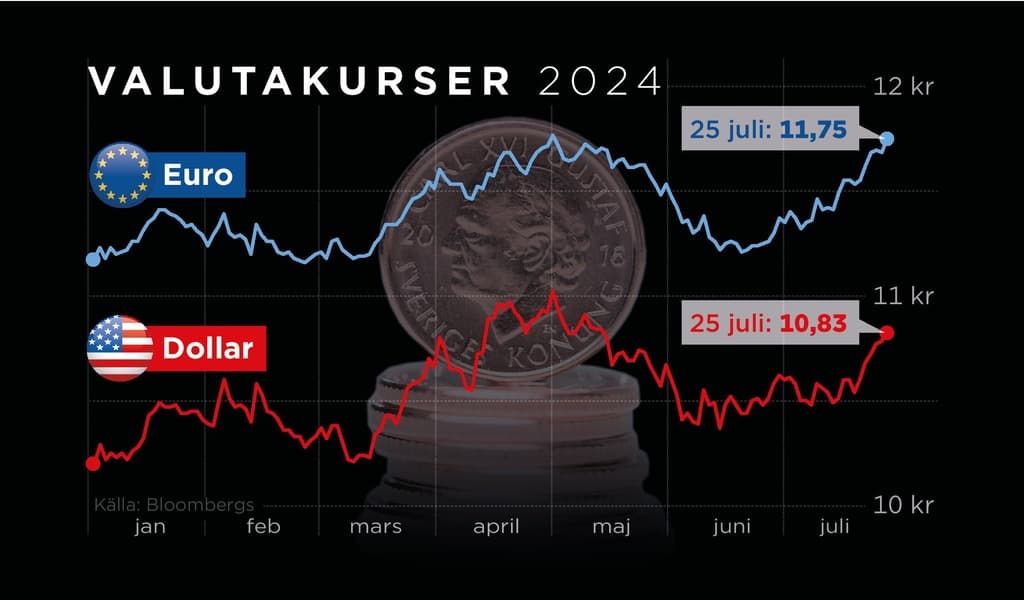The crown has fallen against both the dollar and the euro over the past month. This makes it more expensive for those who are vacationing in Europe – and can also become a headache for the Swedish Central Bank ahead of the autumn's interest rate decision.
Since mid-June, the crown has weakened by around 5 percent against the euro and around 4 percent against the dollar. On Thursday, the Swedish currency temporarily reached its lowest level of the year against the euro.
According to Karl Steiner, chief analyst at SEB, the recent fall against the dollar is due to a lower risk appetite on the market. Large companies such as Tesla and Alphabet have disappointed the market with their reports. In addition, US President Joe Biden's announcement that he will not stand for re-election has created uncertainty.
Everything around the American election has become a bit more uncertain. The market does not really know how Kamala Harris stands against Trump, or what her agenda is, and now has to rethink, he says.
Not the whole explanation
Karl Steiner describes it as the dollar having "strengthened against most things". The dollar is usually seen as a safe investment when the market is shaky, while small currencies like the Swedish one generally weaken.
According to Alexandra Stråberg, chief economist at Länsförsäkringar, the crown's fall likely also has to do with inflation having fallen faster in Sweden than in the eurozone.
The communication from the different central bank governors has also been different, she says.
While the Swedish Central Bank has flagged for two more interest rate cuts this year, the ECB has not wanted to give any prognosis.
In the short term, you therefore see that the interest rate in Sweden will be lower than the interest rate in Europe. This in turn means a crown weakening because it means you get a lower return if you invest in crowns than in euros, says Stråberg.
Acting on inflation
She notes that it will be "noticeable in the wallet" for those who take a last-minute trip to the Mediterranean this summer.
But if the crown continues to weaken, it can also become a headache for the Swedish Central Bank ahead of the next interest rate decision in August.
Inflation is top priority for the Swedish Central Bank, but a crown weakening can in itself affect inflation. If the crown continues to weaken, it may be that they decide from the Swedish Central Bank's side not to make as many interest rate cuts as they initially thought, says Stråberg.
Karl Steiner, on the other hand, does not believe that the Swedish Central Bank will take much notice of the crown in its assessment.
When inflation falls more than expected, you have to act on it first and foremost. As things stand now, they can only note that the crown is weak and that part of it has to do with the international situation, he says.






